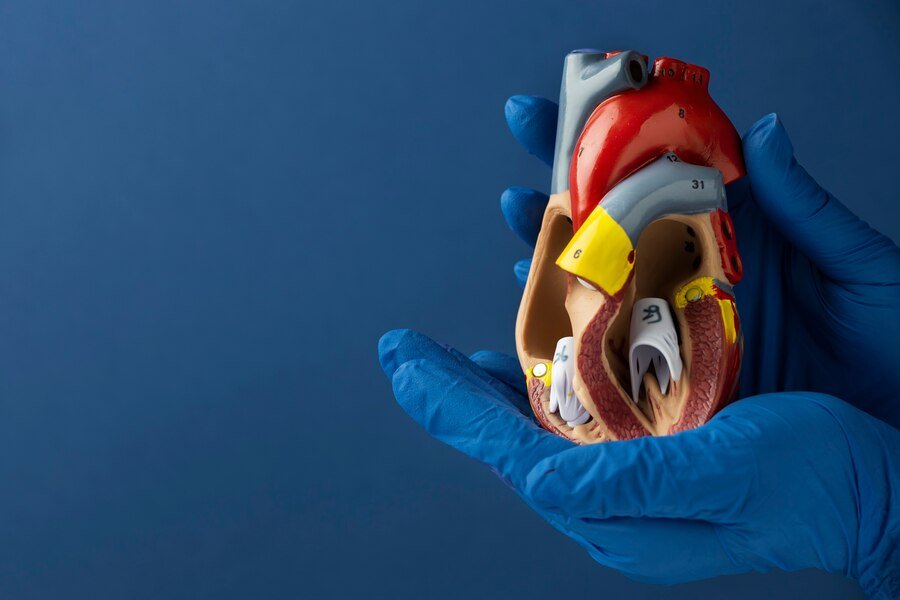
Fortis Escorts Heart Institute and Research Centre Ltd, Okhla Rd, near Sukhdev Vihar Metro Station, Canal Colony, Okhla, New Delhi, Delhi 110025

Heart valve disease is a condition that affects millions of people worldwide, yet many individuals are unaware of its signs and symptoms. Understanding these indicators is crucial for early detection and treatment. In this comprehensive guide, we'll delve into the various signs and symptoms of heart valve disease, empowering you with the knowledge to recognize potential issues and seek appropriate medical attention.
One of the most common symptoms of heart valve disease is shortness of breath, especially during physical activity or when lying flat. This occurs due to the heart's inability to pump blood efficiently, leading to fluid buildup in the lungs. Individuals may experience difficulty breathing, wheezing, or a sensation of suffocation. If you find yourself consistently struggling to catch your breath, it's essential to consult a healthcare professional for further evaluation.
Chest pain or discomfort is another hallmark symptom of heart valve disease. This pain may feel like pressure, tightness, or a squeezing sensation in the chest, and it can vary in intensity. While chest pain can be indicative of various cardiac issues, it's crucial not to ignore any persistent discomfort, as it could signal underlying valve problems. Seeking medical advice promptly can help determine the cause of chest pain and ensure appropriate management.
Fatigue is a common yet often overlooked symptom of heart valve disease. Individuals with this condition may feel unusually tired or lethargic, even after getting adequate rest. This fatigue stems from the heart's inefficiency in circulating oxygen-rich blood throughout the body, leading to decreased energy levels and stamina. If you're experiencing persistent fatigue that interferes with your daily activities, it's essential to discuss your symptoms with a healthcare provider.
Dizziness or fainting spells can be alarming symptoms of heart valve disease. These episodes occur when there is inadequate blood flow to the brain, resulting in lightheadedness, vertigo, or loss of consciousness. Individuals may feel dizzy when standing up suddenly or during periods of physical exertion. If you experience frequent dizziness or fainting, it's crucial to undergo a thorough medical evaluation to rule out underlying cardiac issues.
An irregular heartbeat, also known as arrhythmia, can be a warning sign of heart valve disease. This condition disrupts the heart's normal rhythm, causing palpitations, fluttering sensations, or skipped beats. While occasional irregularities may be harmless, persistent or severe arrhythmias should be evaluated by a healthcare professional. Monitoring your heart rate and seeking medical attention for any concerning symptoms can help prevent complications associated with heart valve disease.
Swelling in the legs, ankles, feet, or abdomen can indicate fluid retention, a common symptom of heart valve disease. As the heart struggles to pump blood efficiently, fluid may accumulate in the body's lower extremities, causing swelling or edema. This swelling may worsen throughout the day and improve with rest or elevation. If you notice persistent swelling or sudden weight gain, it's essential to consult a healthcare provider for proper assessment and management.
As you delve deeper into understanding heart valve disease, consider exploring the following topics:
Treatment Options: Learn about the various treatment modalities available for heart valve disease, including medication, lifestyle changes, and surgical interventions, provided by the Best Chest Pain Treatment in Okhla.
Risk Factors: Explore the risk factors associated with heart valve disease, such as age, gender, family history, and underlying medical conditions.
Preventive Measures: Educate yourself on preventive measures to reduce the risk of developing heart valve disease, such as maintaining a healthy diet, exercising regularly, and managing chronic conditions like hypertension and diabetes.
FAQs about Heart Valve Disease
Heart valve disease refers to any condition affecting one or more of the valves in the heart, hindering their ability to function properly. These valves regulate blood flow within the heart chambers, and any disruption can lead to various symptoms and complications.
Heart valve disease can be caused by several factors, including congenital defects, infections, age-related changes, or certain medical conditions such as rheumatic fever or connective tissue disorders.
Common signs and symptoms of heart valve disease include shortness of breath, chest pain or discomfort, fatigue, dizziness, fainting, palpitations, and swelling in the ankles, feet, or abdomen.
Diagnosis of heart valve disease typically involves a thorough medical history review, physical examination, and various tests such as echocardiography, electrocardiogram (ECG), chest X-ray, cardiac MRI, or cardiac catheterization.
While some forms of heart valve disease cannot be prevented, adopting a healthy lifestyle can reduce the risk of developing certain types. This includes maintaining a balanced diet, regular exercise, avoiding tobacco, managing blood pressure and cholesterol levels, and seeking prompt treatment for any underlying conditions.